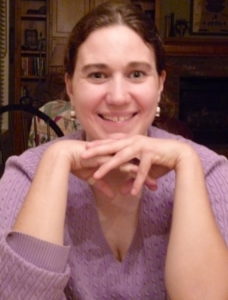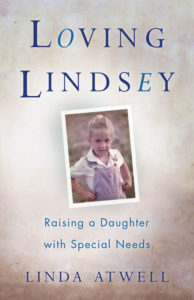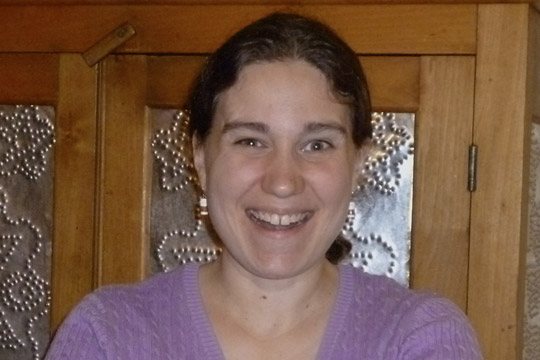
Am I the only mother out there who looked forward to motherhood, but also looked forward to the day her child would eventually move out of the family home?
I can’t say I wished or even thought about my children moving away when they were babies. I loved cradling those seven pound eight ounce bundles in my arms; I loved singing and reading and nursing and burping and changing diapers too. As Lindsey and Michael grew, I beamed when they learned the alphabet, kicked soccer balls, built sand castles, ran outfield on the Challenger’s softball team, sang in choir, or played saxophone in the junior high band. I celebrated every season of my kid’s lives.

In many ways, Lindsey was a typical teenager who challenged every rule. She’d yell, stomp out of a room, slam doors. She talked about her anticipated independence from us. All. The. Time.
By the time her late teenage years cruised into view, my husband and I began fantasizing about the next phase of our lives and looking forward to some peace and quiet, to spending alone time with each other, or traveling the world. Maybe I’d even find and follow a new dream.
During Lindsey’s outbursts, I’d daydream about her childhood, wishing that instead of singing traditional lullabies, I would’ve sung:
Rock a bye baby
In the tree top
When you turn eighteen
Don’t forget to move out
Initially, moving out of the family home didn’t seem to be an option for Lindsey. At least in my mind. Not without lots of support.
For those of you who’ve read my blog, who’ve followed along, you may recall that Lindsey suffered a grand mal seizure when she was sixteen months; that she was diagnosed as mentally challenged when she was six. You might also remember reading that a doctor from Oregon Health Science University predicted Lindsey would likely live in a group home once she reached adulthood. I deliberately ignored his prediction. Instead, I made decisions I thought would best prepare my daughter for independent living, hoping she (like her peers) would gracefully move into adulthood. And because of her mental challenges, I wanted the comfort of knowing Lindsey could support herself if (when) something ever happened to us.
Throughout her life, Lindsey attended Silverton Public Schools. She was mainstreamed, taking regular classes such as home economics and music. Beginning with junior high, Lindsey spent part of each day in the special education department learning life skills. Silverton High’s Special Ed Program participated in an on-the-job training program, partnering with McDonalds and Silverton Hospital and Goodwill. For a couple hours each week, Lindsey job-shadowed different employees in a variety of positions.

Eventually my girl secured a part-time job with two of these companies–working more than a year for each. Once Lindsey turned eighteen, a special education instructor advised and encouraged us to apply (on Lindsey’s behalf) for Social Security Disability benefits. They told us about other programs that might be available to Lindsey once she graduated high school and lived on her own: food stamps and low-income housing.
It is difficult for a mother to let go of a child’s hand as he or she strides toward adulthood. It is even harder if your child has special needs. But there came a time when Lindsey no longer appreciated our advice. She didn’t want our assistance. She wanted to do things her own way, even when we were certain her actions weren’t in her best interest–just like most kids her age.
In Oregon, there is a program called Resource Connections of Oregon (RCO). RCO serves adult customers diagnosed with intellectual and/or developmental disabilities. The adult customers can live on their own, with family or friends, or in a non-state funded 24-hour living arrangement.
RCO’s services are self-directed and person-centered. In other words, the services provided will vary greatly from one customer to another. RCO’s goal? To help each customer live a fulfilling and productive life within his/her community.
One customer might need assistance with an ATM, cashing checks, grocery shopping, making change, providing transportation, helping cook meals. Another person’s needs might be entirely different. Once RCO determines the adult customer’s challenges, the caseworker writes up a plan, a contract. They determine the amount of hours the customer is allowed per month–based upon current funding and income. Finally, RCO finds the customer (a.k.a. Lindsey) a “service provider” (or each customer can find a provider on his/her own–which is the route we took). All providers must pass background checks, drug tests, and have a valid driver’s license.

Thirty-three-year-old Lindsey has family (and family friends) who actively participate in her life, helping out when needed. My girl requires assistance (less and less all the time), and yet, there are still moments when Lindsey spontaneously combusts from trying to handle life’s pressures. In a matter of seconds, she can swing from successfully negotiating her world to being incredibly demanding and needy. Her reactions escalate if her schedule is disrupted or when we are out-of-town. The RCO program provides Lindsey one additional contact to keep things going right in her world.
Lindsey’s current provider is allowed forty-five hours each month with my daughter. Over the last fifteen years, Lindsey has had four different providers for a variety of reasons (one moved, one no longer wanted to be in the program, and Lindsey decided that one provider no longer fit her needs).
This is what Lindsey has to say about RCO:
I like a provider who is nice, kind, caring, and thoughtful*.
*Lindsey repeats the “nice, kind, caring, and thoughtful” mantra for every person in her life and in every thank you note she writes.
Having a provider gets me out of the house.
My provider takes me grocery shopping in her vehicle. And that’s better than carrying heavy bags up the hill.
One of Lindsey’s challenges is learning to communicate better, to carry on a conversation rather than monopolize it. And she is working on visiting local sites such as the Portland Zoo or Mount Angel’s Octoberfest with little or no anxiety. Even though we try to assist Lindsey with these issues (as well as take her grocery shopping), she doesn’t want us to.
“I feel like a little kid when you help me,” she said recently. “But when my provider helps me, I feel grown-up.”

I wasn’t always certain my daughter would or should live on her own, in her own apartment. But she did. For over ten years. She’s surpassed many of the goals I’ve wanted for her. And the story gets better. Lindsey now lives with her husband, Nick. They will celebrate their first anniversary next week. Between family, friends, and RCO, this couple is doing fantastic.
Community support is a wondrous piece of the special needs puzzle. It’s another example of how it takes a village to raise a child. And all these reinforcements give me some peace of mind.

My first book, Loving Lindsey: Raising a Daughter with Special Needs will be out September 26, 2017. If you would like to learn more, click here.
Do you crave respite from your adult child with special needs? How do you work “me time” into your day or week? Does your state or county offer similar services for your adult with intellectual and/or developmental disabilities as RCO?
If you would like to be a hero for someone like Lindsey, please check out RCO’s website and learn more about the possibilities of becoming a service provider. Or you can review the following video:

